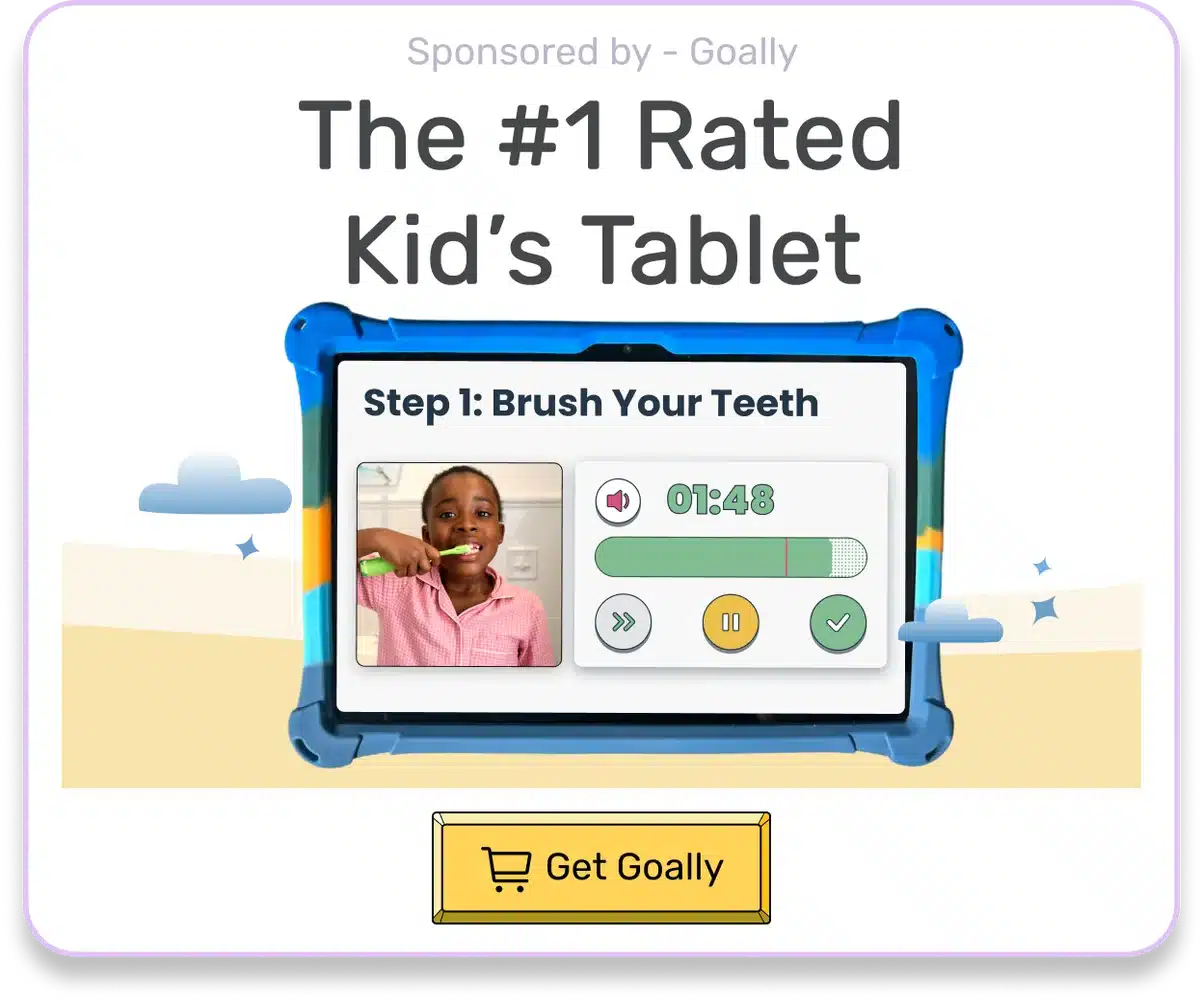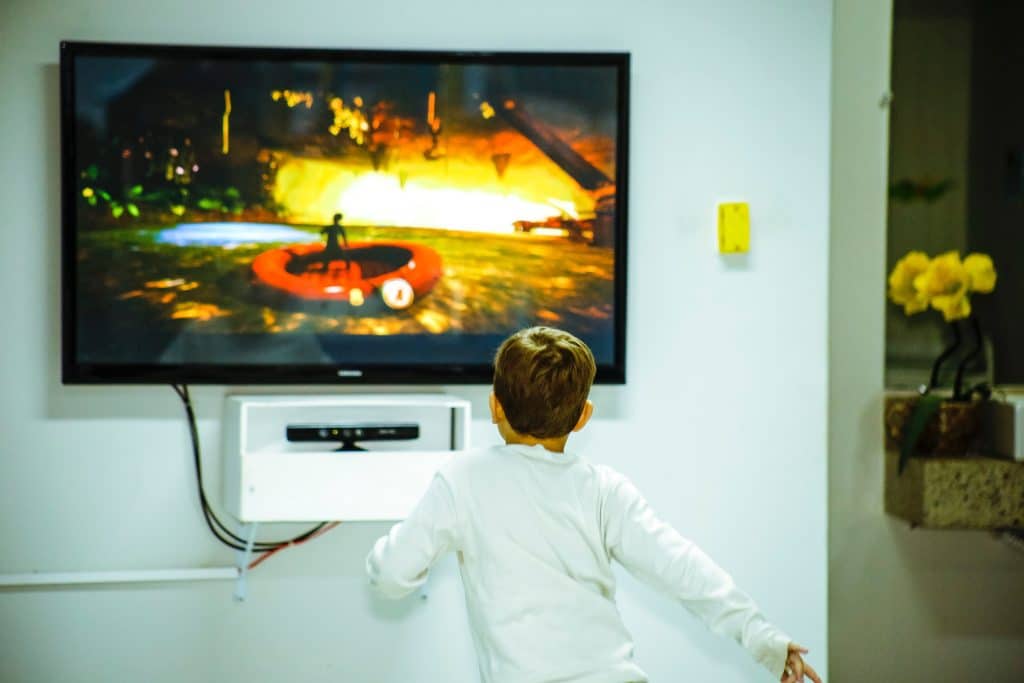As a licensed practitioner who works with kids, I often get asked by parents, “How much screen time is too much for my child?” It’s a valid question, especially in today’s digital age where screens are everywhere. Some say that excessive screen time can impact sleep, healthy nutrition, and exercise, which are essential to optimal brain growth and development and health and wellness for children and adults alike. In this article, I’ll share some guidelines and tips to help you navigate the world of screen time for your kids, including those with special needs.
Table of Contents
What the Experts Say About Screen Time
The American Academy of Pediatrics (AAP) offers guidance for appropriate screen time for different age groups:
- Under 18 months old: Avoid screen media, except for video chatting
- 18 to 24 months old: High-quality programming if parents want to introduce digital media, but parents should watch with children
- 2 to 5 years old: Limit screen time to 1 hour per day of high-quality programs
- 6 years and older: Consistent limits on time spent using media, types of media, and ensuring media does not take place of adequate sleep, physical activity, and other behaviors essential to health
According to a 2019 report by Common Sense Media, tweens (ages 8-12) spend an average of 4 hours and 44 minutes per day on entertainment screen media, while teens (ages 13-18) spend an average of 7 hours and 22 minutes per day. That’s a significant chunk of time!
Goally | The Tablet for Neurodiverse Kids

The Impact of Excessive Screen Time
Too much screen time can lead to a host of problems for kids, including:
- Sleep disturbances
- Obesity
- Behavior problems
- Less time for active, creative play
- Social isolation
For neurodivergent kids or those with learning disabilities, the effects can be even more pronounced. A 2020 study published in Computers in Human Behavior found that excessive screen time was associated with increased anxiety and depression symptoms in children and adolescents with autism spectrum disorder (ASD).

Tips for Managing Screen Time
So, what can you do to ensure your child’s screen time stays within healthy limits? Here are a few tips:
- Set clear boundaries and rules around screen time, such as no screens during meals or before bedtime.
- Encourage other activities, like outdoor play, reading, or hobbies.
- Make screen time a family activity by co-viewing and discussing content together.
- Choose high-quality, educational programming.
- Model healthy screen habits yourself.
For kids with thinking and learning differences, you may need to take extra steps, such as:
- Using visual timers to help them understand when screen time is up
- Providing alternative sensory activities
- Breaking screen time into smaller chunks throughout the day
Goally | Apps To Support Child Development
Looking for fun ways to help your child learn life skills? Try Goally! The Goally tablet comes with award-winning learning apps and video classes to help kids develop the skills they need to become independent with FUN & evidence-based practices.

Our apps teach executive function, language, emotional regulation, finger dexterity skills, and more.
As your child develops new skills, you can increase the difficulty level of the tasks in the app to challenge and motivate them even further. This helps your child grow and progress at their own pace, while also keeping them engaged and excited about their development.

The Bottom Line
At the end of the day, there’s no one-size-fits-all approach to screen time. As a parent, you know your child best. Pay attention to how screen time impacts their mood, behavior, and overall health. If you notice negative effects, it may be time to cut back or make some changes. And remember, quality matters just as much as quantity when it comes to media consumption. By being intentional about the content your kids consume and the boundaries you set around screens, you can help them develop a healthy relationship with technology.
For more information on screen time and kids, check out these resources:
- American Academy of Pediatrics: Where We Stand: Screen Time – Outlines the AAP’s recommendations for screen time by age group.
- Common Sense Media: Screen Time – Offers a wealth of articles, tips, and resources on managing screen time for kids.
- Child Mind Institute: Media Guidelines for Kids of All Ages – Provides age-specific guidelines for healthy media use, including for kids with learning and thinking differences.
FAQ’s About How Much Screen Time is Too Much for Kids
What is the recommended screen time for children under 2 years old? The American Academy of Pediatrics (AAP) recommends avoiding screen media for children under 18 months, except for video chatting. For children 18 to 24 months, parents can introduce high-quality programming, but should watch with their children. How much screen time is appropriate for children between 2 and 5 years old? The AAP suggests limiting screen time to 1 hour per day of high-quality programs for children ages 2 to 5 years old. What are the guidelines for screen time for children 6 years and older? For children 6 years and older, the AAP recommends consistent limits on time spent using media and ensuring that media does not replace adequate sleep, physical activity, and other essential healthy behaviors. Can excessive screen time affect children with learning disabilities or neurodivergent kids differently? Yes, excessive screen time can have more pronounced effects on children with learning disabilities or neurodivergent kids, such as increased anxiety and depression symptoms in children with autism spectrum disorder (ASD). What are some tips for managing children's screen time? Parents can manage their children's screen time by setting clear boundaries, encouraging other activities, making screen time a family activity, choosing high-quality programming, and modeling healthy screen habits themselves.
Emily is a seasoned blog writer for Goally, leveraging her extensive background in child psychology and special education to provide valuable insights and resources for parents. Her commitment to understanding and addressing the unique needs of these children, combined with her expertise in educational strategies, makes her a credible and empathetic voice for families.





